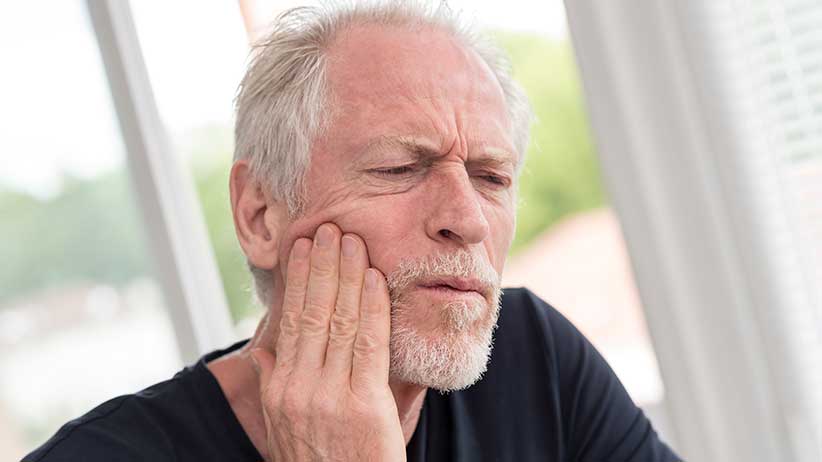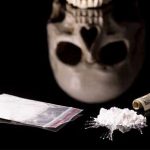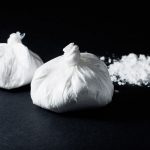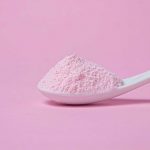Cocaine is a white powder made from the leaves of the coca plant. As a stimulant drug, it causes a rush of energy, confidence, and euphoria (intense joy). It’s among the most widely abused drugs in the world.
Like other drugs, cocaine can have serious side effects. One of the most common side effects of cocaine abuse is called coke jaw.
What Is Coke Jaw?
The term coke jaw refers to the uncontrollable jaw movements associated with cocaine use. As mentioned above, cocaine is a stimulant drug.
That means it speeds up your central nervous system. This can have a variety of mental and physical effects, including uncontrollable jaw movements. In particular, you may repeatedly clench your jaw or move it from side to side.
Coke jaw can occur if you snort cocaine, inject it, or rub it in your mouth. It may also occur if you smoke crack cocaine, which is a rock-like substance made from the powder form of cocaine.
Effects Of Coke Jaw
Coke jaw often leads to jaw pain, tender facial muscles, and headaches. In severe cases, you may also struggle to open and close your mouth.
In addition, coke jaw likely causes bruxism (teeth grinding). This condition can lead to issues such as:
- increased tooth sensitivity
- broken or loose teeth
- damaged fillings, crowns, or bridges
- receding gums
These issues may be more severe if you have a cocaine addiction. That’s because addiction makes it difficult to focus on anything besides cocaine. As a result, you may struggle to maintain your oral hygiene.
Coke Jaw & Coke Mouth
Most people with coke jaw also experience other oral issues associated with the use of cocaine. These issues, which are known collectively as “coke mouth,” may include:
Dry Mouth (Xerostomia)
Cocaine, particularly crack cocaine, can decrease saliva flow. This leaves your mouth dry and more prone to plaque, tooth decay (cavities), and periodontitis (gum disease). It can also increase your risk of mouth sores, cracked lips, and yeast infection of the mouth.
Dental Erosion
Cocaine is highly acidic. In addition, it’s often laced with other acidic substances such as boric acid and procaine. These acids can erode (wear down) your teeth over time. This can lead to tooth pain, tooth sensitivity, and, eventually, tooth loss.
Oral Palate Perforation
Cocaine can damage your oral palate (the roof of your mouth). That’s because it restricts the amount of blood that flows through your mouth.
This can kill the tissue in your oral palate, causing holes to form (also known as perforation). People with oral palate perforation may have trouble swallowing, eating, or talking.
Is Coke Jaw Treatable?
Medical professionals can treat most of the effects of coke jaw. For example, your dentist can fill cocaine-related cavities, repair cracked teeth, and treat gum disease with a deep cleaning. Other effects are harder to treat. Oral palate perforation, for instance, usually requires surgery.
If you are struggling with the effects of coke jaw, talk to your health care provider as soon as possible. They can determine which specific treatments you will need.
To prevent coke jaw from returning, you will need to stop using cocaine. If you feel unable to do so, you may have cocaine addiction. The most common symptoms of cocaine addiction include:
- intense cravings for cocaine
- mood swings
- increased heart rate and blood pressure
- enlarged pupils
- runny nose or nosebleeds (from snorting cocaine)
- sudden weight loss
- decline in personal hygiene
- loss of motivation
- loss of interest in activities once enjoyed
- avoidance of family and friends
- tolerance (needing increasingly larger or more frequent amounts of cocaine to feel the desired effects)
- physical dependency (experiencing withdrawal symptoms, such as depression and fatigue, when you don’t use cocaine)
Cocaine Addiction Treatment
Like other diseases, cocaine addiction requires treatment. If you think you or a loved one is addicted to cocaine, seek help at a substance abuse treatment program. These programs offer treatment options such as:
- medical detox, in which doctors can help you safely stop using cocaine with minimal withdrawal symptoms
- mental health counseling, in which therapists can help you manage cocaine cravings and any underlying mental health concerns that may have contributed to your drug use
- support groups, in which you can discuss your experiences and coping strategies with other people recovering from drug abuse
- aftercare planning, in which you and your doctors can plan strategies to reduce your risk of relapse, such as ongoing therapy, exercise, and housing assistance
Your addiction treatment providers can also give you advice on how to recover from the effects of coke jaw more quickly. For example, you may need to brush and floss more often, avoid sugary foods and drinks, drink more water, and schedule more frequent dentist appointments.
To learn more about cocaine addiction treatment options, please contact Northeast Addictions Treatment Center. Our board-certified healthcare providers offer personalized, evidence-based care to help people recover from a variety of substance use disorders.
Keep Reading:
- Drugs That Cause Face Sores
- Can Cocaine Make You Tired?
- 7 Signs Someone Is Addicted To Cocaine
- Nose Damage From Cocaine Abuse
- Effects & Risks Of Freebase Cocaine
Sources:
Canadian Journal of Dental Hygiene — Cocaine and methamphetamine: Pharmacology and dental implications
National Institute on Drug Abuse — Cocaine DrugFacts
National Library of Medicine: MedlinePlus — Cocaine
National Library of Medicine: MedlinePlus — Cocaine withdrawal






